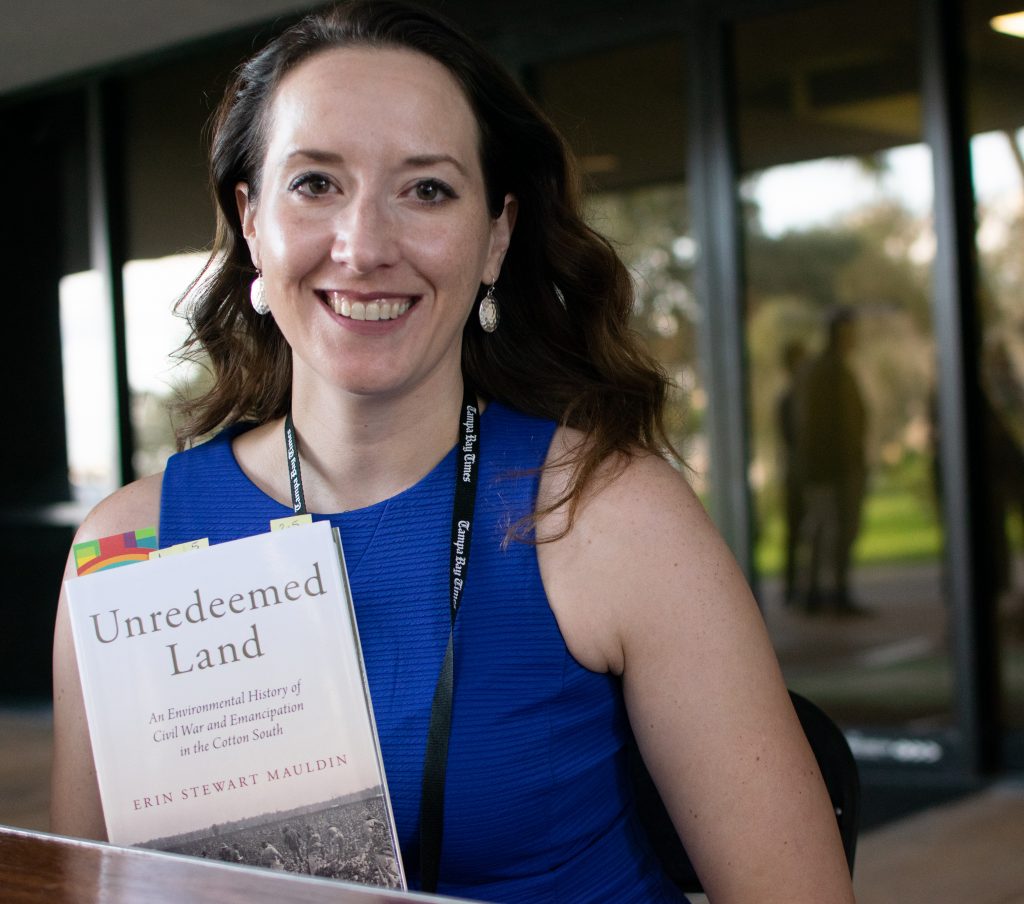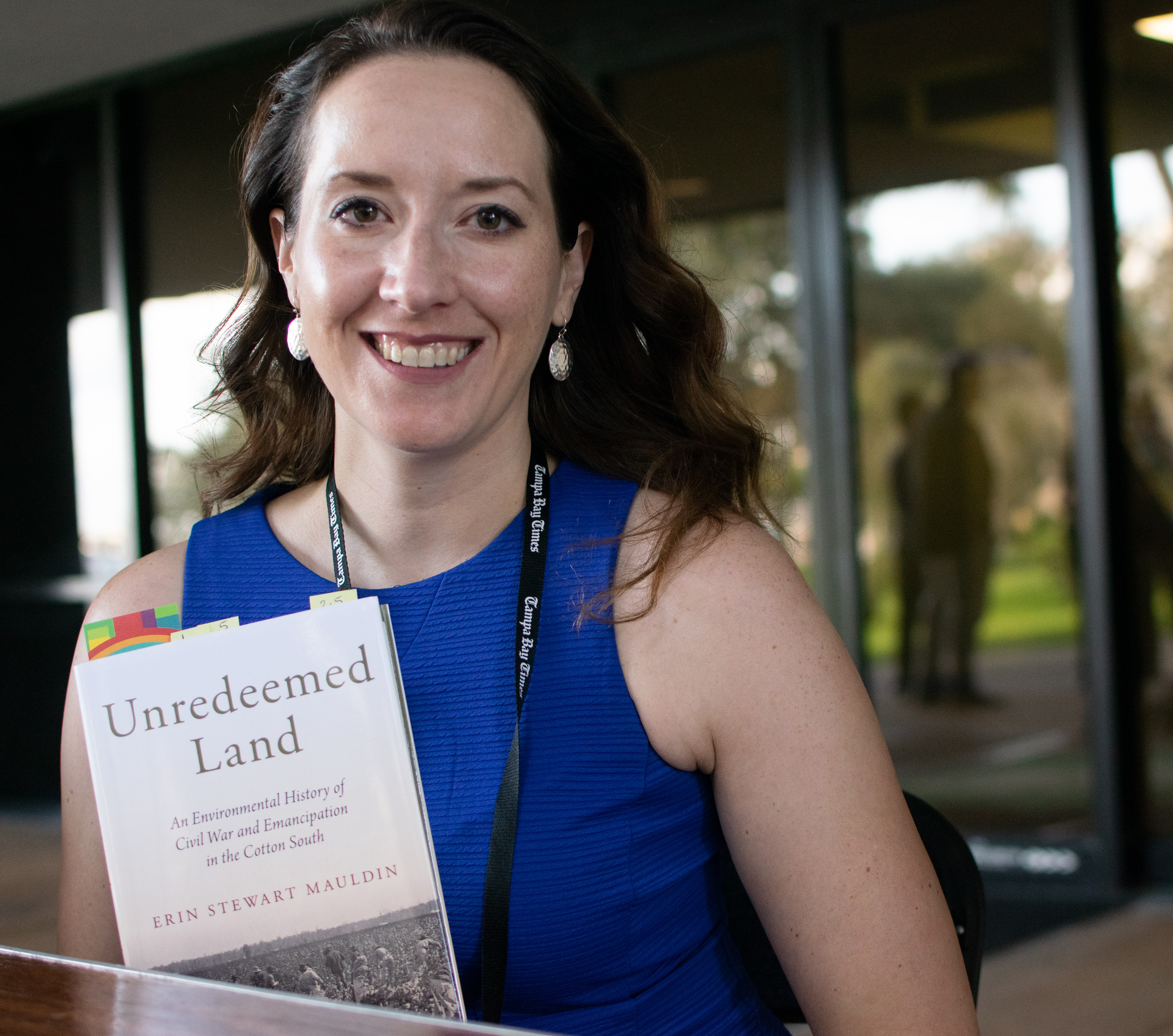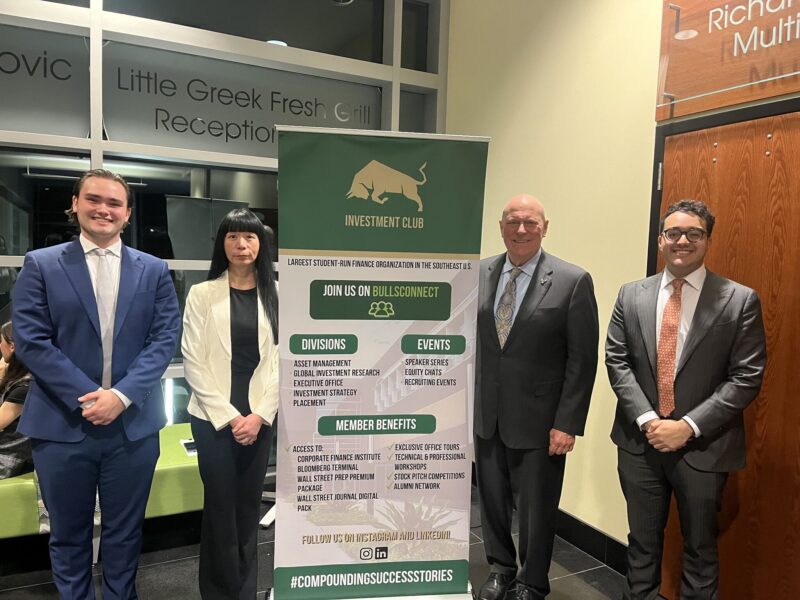
Jonah Hinebaugh | The Crow’s Nest
By Jonah Hinebaugh
Just about everyone learned about Ulysses S. Grant, Abraham Lincoln and the 13th Amendment in high school history.
But what about the struggles of former slaves as they transitioned to new lives or the effects the Civil War had on agrarian ways of life?
Erin Mauldin, an assistant history professor at USF St. Petersburg, spent years combing through letters, diaries and any historical source she could find in researching a book that was published last year. It is titled “Unredeemed Land: An Environmental History of Civil War and Emancipation in the Cotton South.”
Her book documents the material relations of humans and the environment during that time. On Nov. 9, Mauldin spoke at the Tampa Bay Times Festival of Reading about her work.
“There were lots of interesting environmental things that shaped what we know about the Civil War,” Mauldin said. “‘Unredeemed Land’ is an environmental history of Reconstruction that looks at how the Civil War and emancipation changed farming in the South in ways that made both the land and farmers poor.”
“I went into this project hoping to get sort of a view from the ground up of the Civil War,” she said. “In the past, some environmental historians studied the way that humans represent nature of art. Some people study religion.
“I studied material environmental change. I’m interested in how humans have changed soil, woodlands and land use. And similarly, how those elements, in turn, shape human history,” she said.
Mauldin’s focus is on reframing questions related to that century, such as the correlation between slavery and capitalism.
According to her, slavery isn’t what historians portray as a “pre-modern, backwood institution we let go of.”
“For a long time, historians tried to not look at slavery as capitalism,” she said. “We’ve discovered that slave owners were on the forefront of capitalism and many of the management techniques (like) bookkeeping. Anybody who uses a spreadsheet is benefiting from the practices that slave owners developed to keep track of their human capital.
“And so in that way, I think that slavery isn’t just proto-capital, it’s central to understanding the development of capitalism,” she said.
In her book, Mauldin discusses how the Civil War exacerbated the environmental limits of the South, but also how it gave the land a break from human use.
Even in the postwar South, the land suffered due to the increased amount of farmers, the disappearance of the subsistence economy, and land worn from years of marches, battles, explosions and the general disregard the respective armies had toward farmland.
“As lands around the South degraded, both white farmers and black farmers sought a way to ‘redeem’ their exhausted soils,” she wrote in the book.
“The dramatic and irreversible changes to the landscape during the war made the negotiations between farmer and nature more difficult than ever, and because of the ecological legacies of the Civil War and emancipation, the Southern environment remained unredeemed.”
Mauldin drew parallels between climate change and the struggle poor farmers — who were usually former slaves — had in the 19th century.
“When environmental disasters occur, it’s always the poorest who suffer,” she said. “It’s very similar to what happened to ex-slaves. They were on the most marginal land. They had less access to loans or capital. They had fewer resources, and so if there was a drought, a hurricane, a tornado or the invasion of a pest, they were the ones who suffered.
“That ecological instability, both in the 19th century and today, always exacerbates racial prejudice, class tension and discrimination.”
She attended Samford University and majored in history and biology. She received her bachelor’s degree in history and attended Georgetown University, where she received her doctorate in 2014.
That university is also where her book first began to take shape. A research paper developed into a dissertation.
Mauldin thinks analyzing the material relationships between humans and nature gives more insight into the social structures prevalent in that time.
“I feel like you get to the heart of people’s everyday experiences,” she said. “When you talk about war, or emancipation, these are really big processes that are often sanitized over time.
“When you talk about soldiers suffering from disease or cutting down trees or slaves struggling to feed their families, you’re getting at the interaction between people and the environment in which they live.”
Earlier this year, Mauldin received a $10,000 grant from USF to begin research on her upcoming book, “The First White Flight: Industrial Pollution and Racial Segregation in New South Cities,” which will cover the history beginning at the end of the Civil War and going into the 1950s.
“It’s about the role of industrial pollution and creating ‘white flight’ in southern cities after the Civil War,” she said. “So, whites left African Americans to handle the worst environmental costs of industrialization.”



